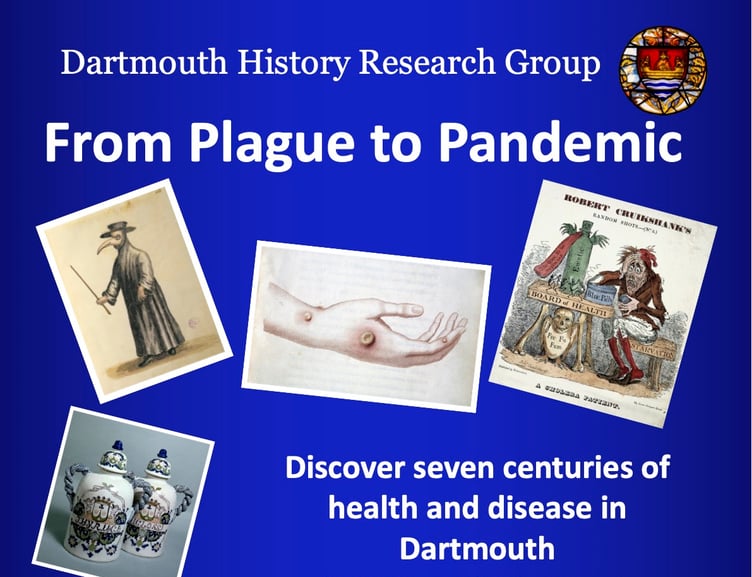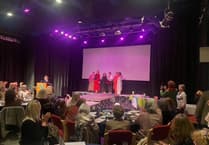Have you ever wondered what life was like when plague struck Dartmouth? How did people try to protect themselves, and how healthy were communities in the late 18th century? When was the stethoscope invented, and why was it significant? What was the impact of the cholera epidemic in the 1830s, the “Spanish flu” of 1918–19, and how did new housing improve health in the early 20th century? And, five years on from Covid, what lessons can the past offer us in understanding our own experiences of a pandemic?
These questions – and many more – will be explored at a free History Day organised by the Dartmouth History Research Group on Saturday 15 November 2025 at The Flavel Arts Centre in Dartmouth. The event runs from 11am to 3.45pm (doors open 10.40am) with a programme of talks, displays and activities. Visitors are welcome to attend for the whole day or drop in at any time.
The morning begins at 11am with two talks, followed at 12.15pm by a presentation from the Devon and Exeter Medical Heritage Trust, showcasing fascinating historic medical objects. From 12.45pm, during the break, visitors will be able to handle these artefacts, make their own plague nosegay, and discover some of the curious remedies once available in Dartmouth. Displays will also highlight how teachers sought to improve children’s health in local schools a century ago. Tea and coffee will be available, though lunch arrangements are left to individuals.
The afternoon continues at 2pm with two further talks, followed by an open Q&A session. The day concludes at 3.45pm with the launch of Your Pandemic Stories, a new project capturing local memories of Covid for future generations.
Full details can be found at www.dartmouth-history.org.uk.





Comments
This article has no comments yet. Be the first to leave a comment.